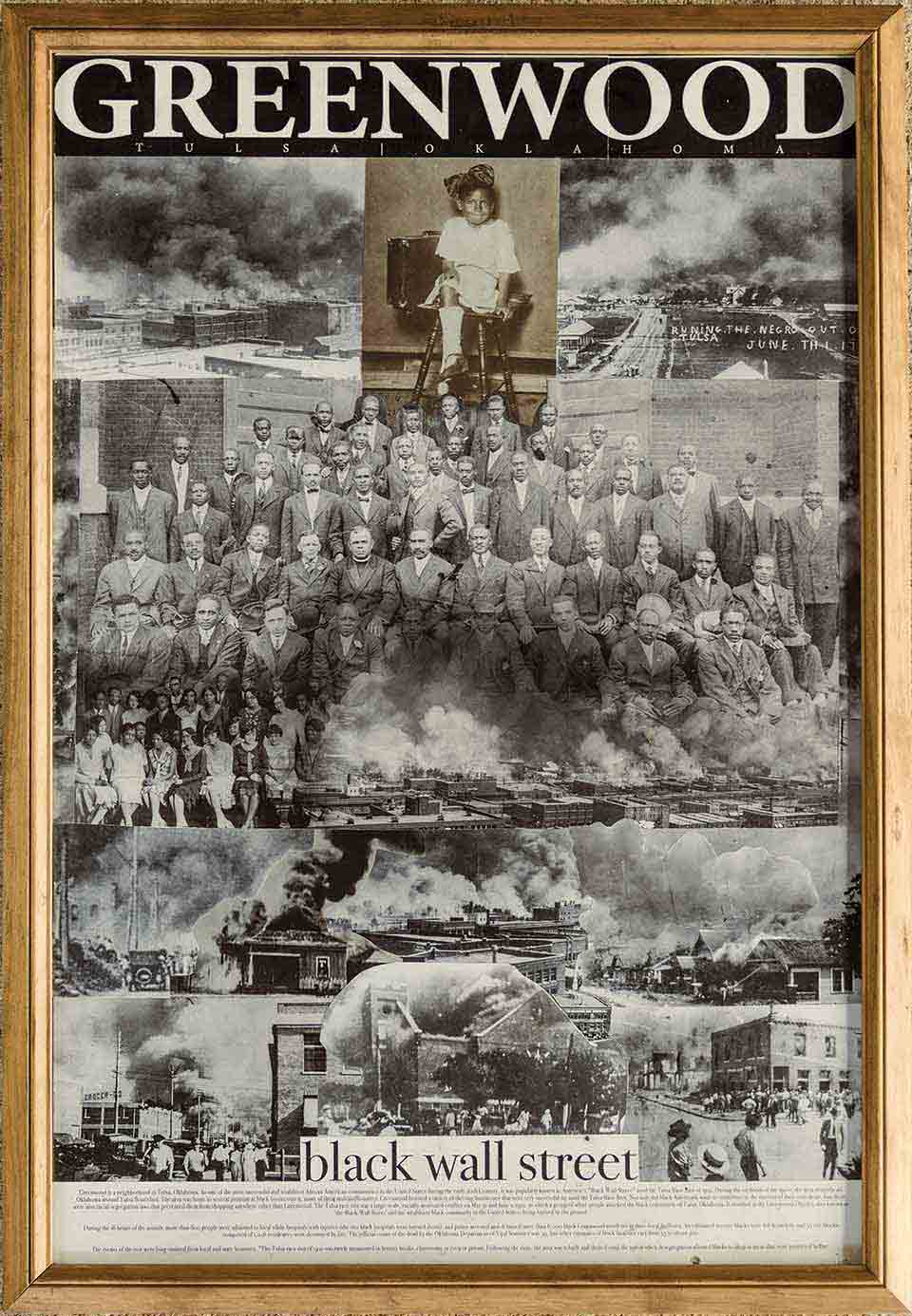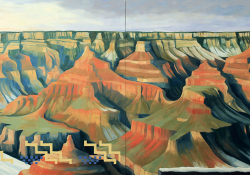Somewhere

It was the day of brutal winds, all of them ganging up to blow injustice down. They sang the changing weather. I was going nowhere.
Anything on the ground not burdened by gravity was twisted and lifted up to drop. There were dreams, cities, and plastic bags. I was going nowhere.
I tightened my coat to the approaching winter, but you cannot duel and win against a season, history, or a murder of winds.
Shooting down MLK Boulevard, I was approaching Archer, the juncture of several histories. A burned street of wishes was smoking there. I was going nowhere.
I just wanted to get home, but where is home I always ask the sky, no matter where I roam. An old Mvskoke map is different. We know by trees, rocks, and the obligations of relatives. We might be going nowhere.
Our roads aren’t nice lines with numbers; they wind like bloodlines through gossip and stories of the holy in the winds. History is everywhere. Three tribal nations met here. We weren’t going to go anywhere.
At the corner of justice and fight, the thought of the miraculous was miles from my mind. It was nowhere in my mind. It was curled up in a distant field in the heart of a once-loved country.
Then I saw books flying from an unseen woman’s hands, shoes that never fit her or anyone, and poetry everywhere. She was going nowhere.
I had been thinking of the massacre down the street from here, and how ghosts keep their place among us. How I might be a ghost set loose here in the wind, walking with a ghost of fire.
And then there she stood, a ruined goddess, half-naked on the sidewalk, classic Africa in her stance of beauty. We are going nowhere.
“Excuse me, excuse me,” she called out to me. There is no excuse for this raw story of abuse. And no clothes will fit this moment of the tale. Nothing good enough for her beauty.
She was a child when the first man took her. Her home is her pain naked without clothes. Where was her father, her mother? Burning. There is nowhere nowhere.
Time is always moving. It is we blood carriers who stay rooted to the gravity of hurt. The story has to be told to be free like a tree lifted in a breeze. If we don’t tell it; the stillness will.
I could give her my jeans, my jacket, my shoes. I searched her mind as it flew in the wind. My mind chased her mind through tunnels of time. It was going nowhere.
There is no excuse sang the winds of forgotten history as they covered her up with a ragged blanket stitched with loneliness to take her with them.
I was feeling my pockets for change, for guns to protect her, nails and lumber to rebuild all the houses burned by hatred. I only found a pen without paper. History goes nowhere.
It is always female power that bears truth to righteousness of any new nation. Liberty guards the harbor. Sacagawea the river of discovery. The Virgen de Guadalupe, the earth.
And here, the one for whom I have no name, is not nameless. The mass grave is a grave of names. Without knowing them, we are going nowhere.
I see her now on every corner, the miracle the winds brought, a song made by the rejects of history, wearing clothes that cover nothing. She is everywhere.
I turn up the music. It’s from my girlhood just miles up the road. Blood tales run through our bones, like these streets made of the unspeakable. These winds will never stop telling the truth. I thought I was going nowhere.
December 30, 2020
Tulsa, Oklahoma
The Muscogee Creek Nation Reservation













